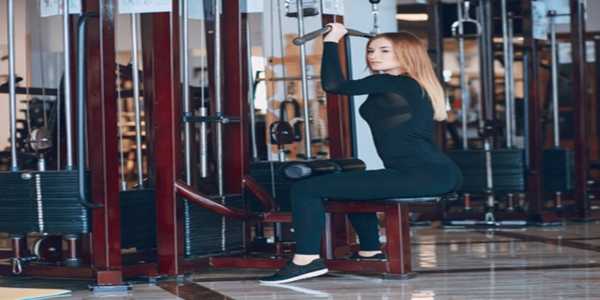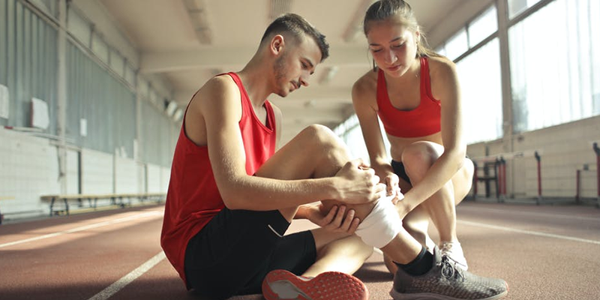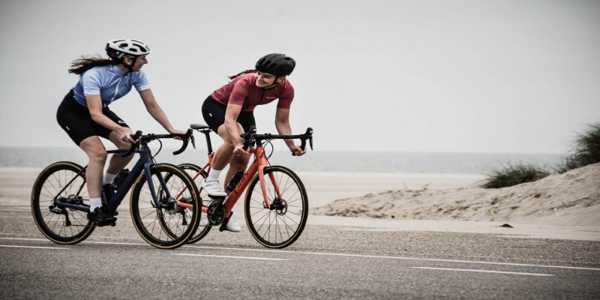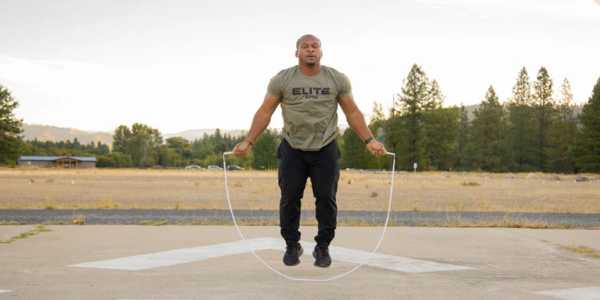How Roller Skating Can Boost Your Agility Fast
Are you looking for a fun, exciting way to improve your agility? Forget the usual drills and workouts—roller skating might be the answer!
Agility is all about quick movements, balance, coordination, and reaction time. Athletes train tirelessly to sharpen these skills, but what if you could boost your agility while gliding around and having fun? We’ll dive into how roller skating enhances agility, the key exercises to maximize your results, and tips to get started fast.
The Science Behind Agility And Roller Skating
Agility isn’t just about speed—it’s about control, balance, and the ability to change direction quickly. It involves a combination of:
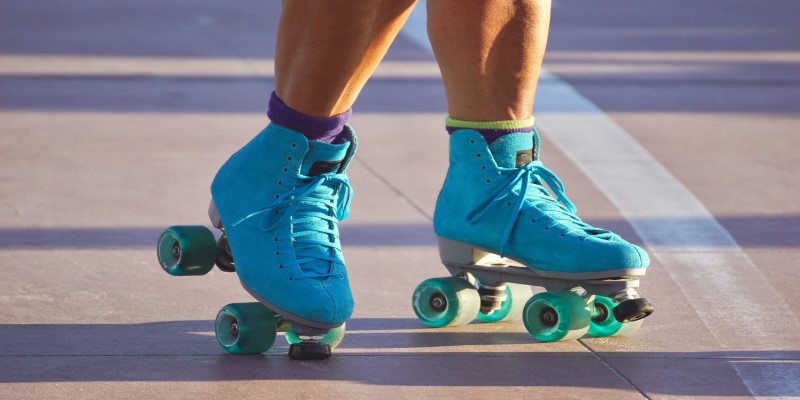
Balance
The ability to maintain stability while moving.
Coordination
The seamless connection between your mind and body.
Reaction Time
How quickly you respond to external changes.
Strength And Endurance
The muscle power and stamina needed for movement.
Roller skating naturally incorporates all these elements. When you’re on skates, your brain constantly adjusts to maintain balance, your legs work to control speed and direction, and your core engages to keep everything in sync. This makes skating a powerful tool for developing agility in a dynamic way.
How Roller Skating Enhances Agility
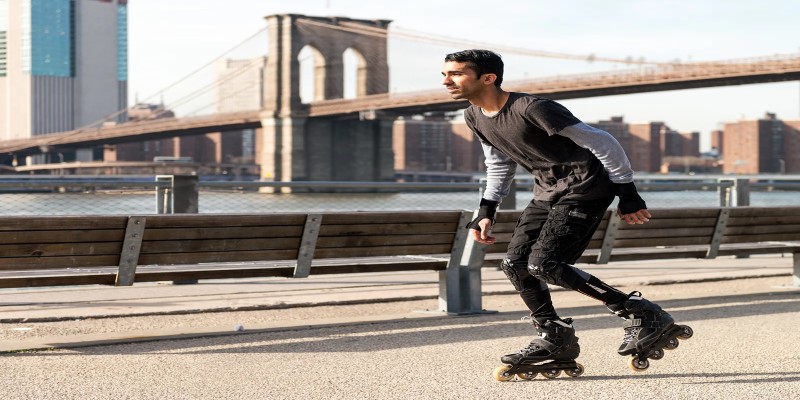
Improves Balance And Coordination
Every time you push off and glide, your body has to stabilize itself. Unlike running or biking, skating forces you to rely on smaller stabilizing muscles, especially in your legs and core. Over time, this strengthens those muscles and enhances coordination, making your movements more fluid and controlled.
Try This: Practice one-legged glides. Shift your weight to one leg and try to balance for as long as possible while moving. This will challenge your stability and improve coordination.
Enhances Reflexes And Reaction Time
Skating is unpredictable—you have to navigate turns, obstacles, and changes in terrain. Your body must react quickly to avoid falling or losing balance. This constant adjustment fine-tunes your reflexes, making you faster at responding to sudden changes in any sport or activity.
Try This: Skate through a cone course or weave between objects at increasing speeds to sharpen your reflexes.
Boosts Lower Body Strength And Endurance
Strong legs are essential for agility. Skating targets major muscle groups like the quads, hamstrings, calves, and glutes. Unlike traditional workouts, it builds strength without the high impact of running, reducing the risk of injuries.
Try This: Deep skating lunges—push off with one leg and bend your knees deeply as you glide forward. This builds power and endurance in your legs.
Encourages Quick Direction Changes
In sports and daily life, being able to change direction quickly is a game-changer. Roller skating forces you to master smooth transitions and swift pivots, which directly translates to better agility.
Try This: Practice quick turns and crossovers, alternating directions to challenge your agility.
Develops Core Stability
A strong core is key for agility. Roller skating engages your abs and lower back with every movement, helping to improve balance and coordination.
Try This: Engage your core by maintaining an upright posture while skating. Avoid leaning too far forward or backward, and focus on controlled movements.
Exercises To Maximize Agility On Skates
If you want to supercharge your agility, incorporate these drills into your roller skating routine:
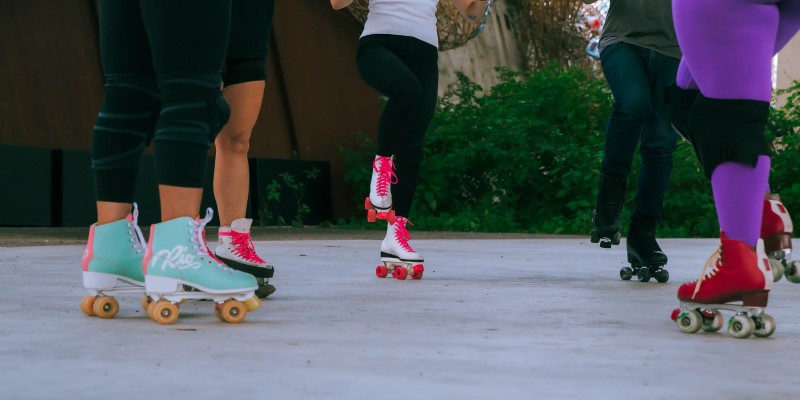
Slalom Weaving
• Set up cones or markers in a straight line.
• Skate through them, shifting your weight from side to side.
• Start slow, then increase your speed as you improve.
Benefit: This improves lateral agility and coordination.
Speed Stops And Starts
• Skate forward at a moderate speed.
• Quickly stop and restart as fast as possible.
• Use different stopping techniques (plow stop, T-stop) to engage different muscles.
Benefit: Develops fast reaction time and quick acceleration.
Jump Transitions
• Skate forward and jump to turn 180 degrees in the air.
• Land softly and keep skating in the new direction.
• As you get better, try 360-degree jumps.
Benefit: Enhances agility by improving explosive power and stability.
Backward And Forward Skating Switches
• Skate forward, then quickly transition to skating backward.
• Alternate between the two as smoothly and quickly as possible.
Benefit: Trains directional agility and body control.
One-Leg Balancing Drill
• Skate forward and lift one foot off the ground.
• Hold for a few seconds before switching feet.
Benefit: Strengthens stabilizing muscles for better control.
Tips For Skating Safely And Effectively
To get the best results while avoiding injury, follow these tips:
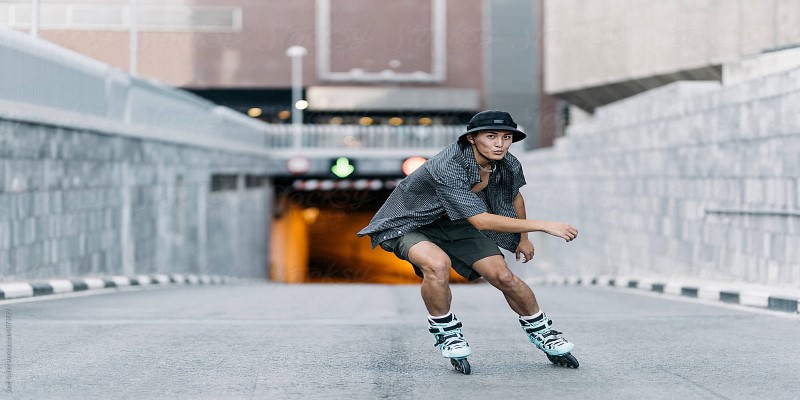
Start Slow And Build Up
Don’t rush—agility takes time to develop. Begin with simple movements and gradually increase intensity.
Wear Protective Gear
Knee pads, elbow pads, wrist guards, and a helmet are essential. Agility training can involve quick movements, so staying safe is key.
Focus On Posture
Keep your knees slightly bent, back straight, and core engaged for better stability and control.
Skate On Different Terrains
Practicing on smooth rinks, rough pavement, and slopes will improve adaptability and reaction speed.
Combine Skating With Strength Training
Agility is a mix of skill and strength. Incorporate exercises like squats, lunges, and planks to build the muscles needed for skating.
Who Can Benefit From Roller Skating For Agility?
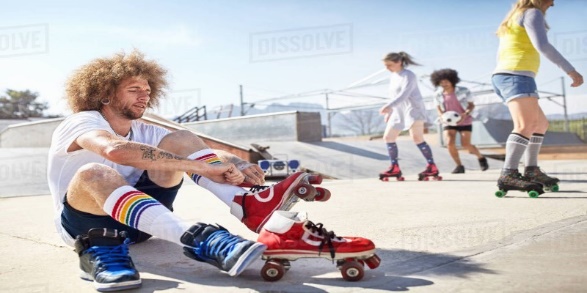
Athletes
Whether you're into basketball, soccer, or martial arts, agility is a crucial skill. Roller skating can supplement traditional training to improve quickness and footwork.
Dancers And Performers
Skaters who engage in dance or artistic performances will see improved coordination and fluidity in their movements.
Everyday Fitness Enthusiasts
Even if you're not an athlete, boosting agility can make daily activities easier—whether it’s playing with your kids, hiking, or simply staying active as you age.
Glide Your Way To Better Agility
If you’re looking for a fresh, engaging way to improve agility, roller skating is the perfect choice. It strengthens your legs, sharpens your reflexes, and builds balance—all while being incredibly fun!
So, grab a pair of skates, hit the pavement, and watch your agility soar. The more you practice, the faster you’ll see results. Happy skating!
